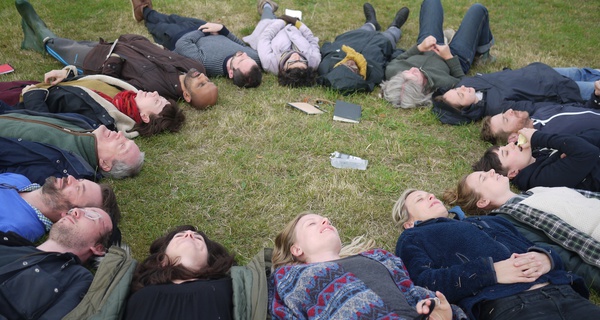
SERVICE
Written by Maddy Costa in conversation with and edited by Leo Kay and Anna Smith
A great deal of Leo's practice over the past 15 years has involved placing himself in service to other people's ideas, whether as performer, director or facilitator. Within Unfinished Business he's made a conscious decision to generate more work himself, and to do so in ways that generate more opportunities for other people - in particular, people who aren’t already professional artists or peers. As Leo says: “Supporting people who haven't yet crossed the bridge to making art professionally or might never have the opportunity to do so has, at points, felt more important and fulfilling than supporting solo artists who have invited me to collaborate.”
But it brings with it a fraught set of ethical questions. “I want to base more of my practice in facilitating other people's voices, so that the privileged white male voice of our culture isn't always centre stage, but do I have the right to do that? Once you start self-generating ideas within a facilitation context, then you're not only in service of other people's desires: you're framing other people's work.”
This is relevant to any process that involves an artist working with people who are not artists, and so not in control of the context in which their voices are heard, and especially relevant when working with autobiography. A question Leo asks himself constantly is: to what extent might he be exploiting the autobiographies of others? To what extent are they in fact in service to him? “I want to talk about that,” he says, “and I don't have the answers to it.”
Such questions are particularly taxing in relation to the Candomble film project. Although Leo filmed Mae Iara's congregation at her invitation, he knows that his ability to do so is the result of that white male European privilege, and worries that to create a documentary – even one entirely in service to Iara's vision – might privilege his own voice even further. As a result, at the point of publishing, he has decided not to pursue making the documentary. Which raises, for me, another difficult question: what is worse, that he exercise that privilege and so the story is told - or that the congregation’s story isn’t told at all?







